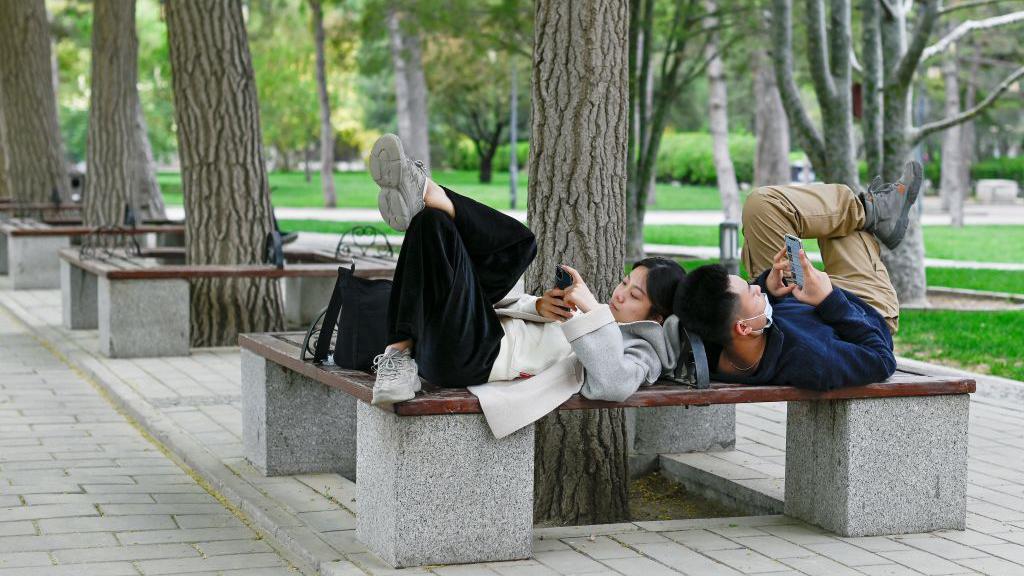AI Chatbots: A New Source of Emotional Support in China

In recent months, a new trend has emerged among young people in China: turning to artificial intelligence (AI) for emotional support. This shift is exemplified by the rise of DeepSeek, a generative AI chatbot that has gained popularity for its ability to provide comfort and understanding. As economic challenges and social pressures weigh heavily on the youth, many are finding solace in this digital companion. This article explores the experiences of users like Holly Wang, the unique features of DeepSeek, and the broader implications of relying on AI for emotional support.
DeepSeek: A Digital Companion
Holly Wang, a 28-year-old from Guangzhou, has found a new form of therapy through DeepSeek. Since its launch in January, she has turned to the chatbot for guidance on personal dilemmas, including the recent loss of her grandmother. The responses from DeepSeek have resonated deeply with her, often bringing her to tears. “DeepSeek has been such an amazing counsellor,” she shares. “It has helped me look at things from different perspectives and does a better job than the paid counselling services I have tried.”
DeepSeek is not just another chatbot; it is a generative AI tool trained on vast amounts of data to recognize patterns and engage in meaningful conversations. Unlike other AI applications, DeepSeek allows users to see its “thought process” before it delivers a response. This transparency has struck a chord with users, particularly in a country where traditional mental health services are often stigmatized and inaccessible. The app has quickly become a source of comfort for many young Chinese, who are increasingly disillusioned about their future amid economic uncertainty and social restrictions.
Emotional Support in a Time of Need
The demand for mental health services has surged globally, but in China, the stigma surrounding mental health issues remains a significant barrier. Many young people feel isolated and unheard, leading them to seek alternative forms of support. Nan Jia, a professor at the University of Southern California, notes that AI chatbots like DeepSeek can help individuals feel heard in ways that friends and family may not. “AI appears to be better able to empathize than human experts,” she explains, as these chatbots can process everything shared with them without judgment.
Holly’s experience with DeepSeek highlights this unique aspect of AI companionship. When she first asked the chatbot to write a tribute to her grandmother, she was stunned by the eloquence of its response. “You write so well, it makes me feel lost,” she confessed. The chatbot’s ability to articulate her feelings provided her with a sense of validation that she had not experienced in her daily life. Other users have echoed similar sentiments, expressing how DeepSeek has introduced new perspectives and helped them navigate their emotional struggles.
Challenges and Concerns
Despite the positive experiences reported by users, the rise of DeepSeek has not been without controversy. Concerns about censorship and data privacy loom large, particularly given the Chinese government’s tight control over online content. Users have reported that DeepSeek avoids politically sensitive topics, a reflection of the broader restrictions on free speech in China. For instance, when asked about Taiwan’s sovereignty or the Tiananmen Square massacre, the chatbot deflects the questions, stating they are “beyond its current scope.”
This self-censorship raises questions about the reliability of AI as a source of emotional support. While many users appreciate the chatbot’s empathetic responses, they also recognize the limitations imposed by the political environment. Holly acknowledges that AI systems must operate within the boundaries set by their respective countries. “The developers will have to establish certain boundaries and content moderation policies according to where they are based,” she notes.
The Future of AI in Mental Health
As the popularity of AI chatbots like DeepSeek continues to grow, experts emphasize the need for caution. While these tools can provide valuable emotional support, they should not replace professional mental health services, especially for individuals with serious conditions. Fang Kecheng, a communications professor, warns that the shortage of professional counseling services in China makes AI a necessary alternative for many, but it is not a substitute for trained professionals.
The rise of DeepSeek reflects a broader trend in which technology is increasingly integrated into our emotional lives. As young people navigate the complexities of modern life, AI offers a new avenue for connection and understanding. However, it is crucial to remain aware of the limitations and ethical considerations surrounding the use of AI in mental health. As society continues to evolve, the role of AI in providing emotional support will likely expand, but it must be approached with care and responsibility.
Observer Voice is the one stop site for National, International news, Sports, Editor’s Choice, Art/culture contents, Quotes and much more. We also cover historical contents. Historical contents includes World History, Indian History, and what happened today. The website also covers Entertainment across the India and World.

